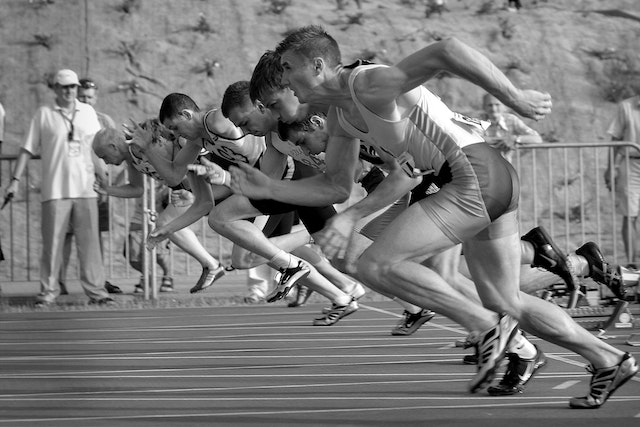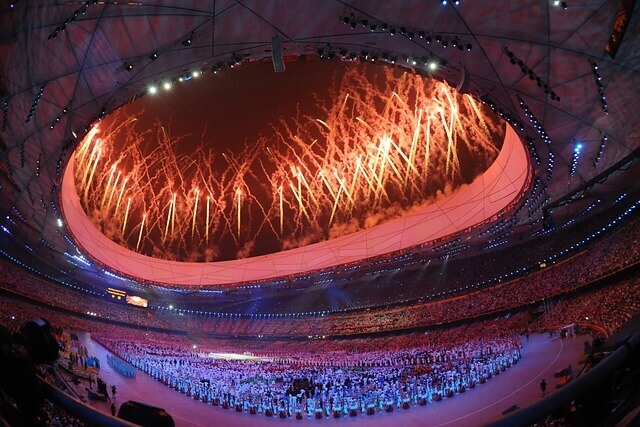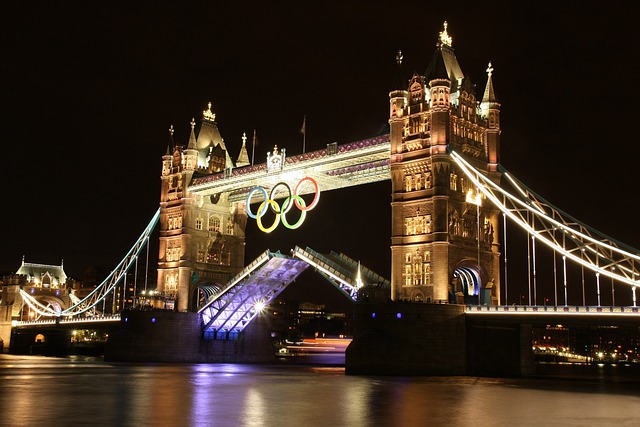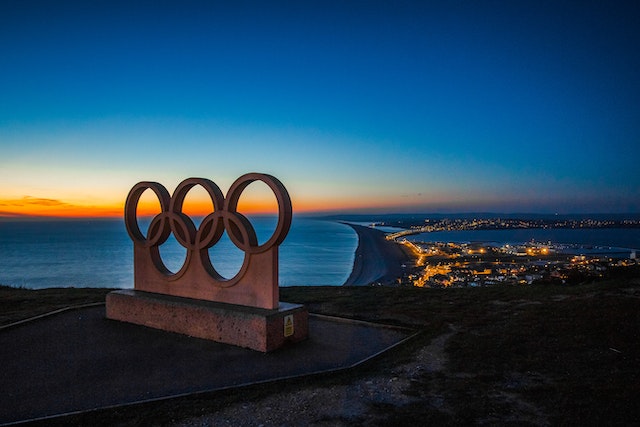Some avid fans of the Olympic Games and the history of this event may already know that, but for less involved enthusiasts of sports, this might be new information. The French language is one of the official languages of every Olympic Games, and there is even a special organization whose mission is to ensure that French remains in use during this event.
One might question the importance of the French language being one of the official languages spoken at the Olympics. After all, every competition is an international event, with speakers reporting and commenting on it in hundreds of languages for many nations to enjoy.
Well, as you may already know from school, Olympic Games have a long history and traditions, shaped by many great men. One of them was a Frenchman.
The Brief History of Olympic Games
Olympic Games were invented in ancient Greece, where they were held from the 8th century BC to the 4th century AD. Just like the modern Olympic Games, the ancient ones were organized every four years, and the main disciplines in which the ancient sportspeople competed were running, combat, discus, long jump, and pentathlon, which was a combination of a few disciplines.
The last ancient Olympic Games took place at the turn of the 4th and 5th centuries, and for the next fifteen centuries, the tradition of the Olympics would not be cultivated. This changed in 1894, the year in which Baron Pierre de Coubertin founded the International Olympic Committee (IOC).
Pierre de Coubertin was a passionate French educator and historian dedicated to introducing sports to French youth. As a historian, he was familiar with ancient Greece competition, from which he took inspiration when founding IOC. His goal was to popularize the sport and peaceful competition amongst young people and nations.
Frenchman was responsible for designing the Olympic symbol in 1913, the Olympic Charter and protocol, as well as the athletes’ oath and important components of opening and closing ceremonies. It’s safe to say that the modern Olympics exist in the shape we know it, thanks to Coubertin.
The first Olympic Games in 1896 were held in the Panathenaic Stadium in Athens. Olympia in Greece is also the place Pierre de Coubertin chose for his heart to be buried after his death, which took place in 1937.
As an originator of modern Olympics, Coubertin chose French, his native language, as the official language of the Olympic Games. Since the Games of 1896, a lot about the Olympics have changed, but French being one of the official languages of the competition, remains a tradition to this day.

The Three Official Languages of the Olympic Games
We’ve established that French was the first official language spoken at the modern Olympics, but it’s not the only official language used during competition today. Rule 23 of the IOC Olympic Charter specifies that both French and English are considered official languages of the Olympics.
As a consequence, every text, official announcement and communication should be available in French and English during these events. Simultaneous interpretation must be provided in those languages at all sessions, and if there are any discrepancies between the French and English texts in IOC documentation, it is the French language that takes precedence unless it is specified otherwise in writing.
What more is there to know about the official Olympics languages?
French Language
French was an important language in diplomatics and international relations at the time the first modern Olympic Games were organized. Apart from being the native language of Coubertin, French was chosen to be the official language of the Olympics because IOC’s main headquarters were located in French-speaking Lausanne in Switzerland.
As we’ve mentioned earlier, the official instructions that were given to the participants of the event state clearly, that in case of any disagreements in the official communication, it’s the French texts that have priority.
Of course, over the years, many things evolved and now the most prominent language when it comes to the number of people who know it is English. This caused the French language to lose its importance at the Olympics.
English Language
The second official language of the Olympics stated in the Olympics Charter is English. The choice of this language is understandable, as English is one of the international languages. It is estimated that around 1.5 billion people speak this language, which means English is the preferred language to effectively communicate with participants of the event.
Host Country Language
It’s also valuable to know that in cases when Olympic Games are hosted by a country whose official languages are not English or French, the third official language of the event is the language of the host country. That’s why participants will often see communications, texts and official announcements in the third language as well.
Of course, sports teams, commentators and reporters come to this event from all over the world, and there are many different languages present at each Olympic Games. Interestingly, it’s the host language’s alphabet that determines the order in which countries enter the opening ceremony. The only exceptions to this rule are the host country and Greece, which always enters the ceremony first, as a symbol of where and how the Olympics came to life.

The Role of Grand Témoin
Since proficiency in English is much more common among Olympics participants and people who watch the competition than proficiency in the French language, the latter frequently gets overlooked. In fact, since 2004, the International Francophone Organization has been sending a designated person, Grand Témoin (Great Witness), to every Olympics to ensure the French language is being used.
This person is responsible for overseeing if and how French is spoken at the Olympics, if it appears on signs and if volunteers and people at the venue speak French in any capacity. It’s important for France and other French-speaking countries to honour the memory of the Olympics’ origins and French culture at the Olympics.
The International Francophone Organization (IFO) intervenes in instances when the French language is being excluded from official announcements and communication. For example, they raised a red flag during the planning stages of the last Tokyo Olympics in 2020. The representatives noticed that all conferences were held only in Japanese and English. The same case was with the official Olympics materials.
Thanks to the IFO, the memory of Pierre de Coubertin and Frances’ role in the reborn of the Olympic Games is kept alive.
2024 Summer Olympics in Paris
The usage of the French language won’t be a problem at the next Olympic Games, as the 2024 Summer Olympics will be held in Paris. This, of course, is fantastic information for France and all the French-speaking nations, as hosting the Olympics is considered a great honour.
It holds a special significance considering all the history and the role France played in restoring the Olympics to their former glory. Paris 2024 will be an excellent opportunity to rekindle the spirit of the first modern Olympic Games and celebrate the achievements of Pierre de Coubertin.
Ivan Coste-Manière, vice-president of the Francophone Association of Olympic Academies, said, “Paris 2024 is a unique opportunity, let us say even historic, to put the French language back in the spotlight within the Olympic movement.
Indeed, it’s a special opportunity for the French language to be at the heart of the whole event once again, bringing attention to its historic value within the Olympics context and its role today.
Games of the XXXIII Olympiad will begin on Friday, July 26 and end on Sunday, August 11, 2024.
The Importance of the Olympics
Since the very first Olympic Games, the competition has always played a vital role in the communities that participated in it. In ancient Greece, it was a festival of virtues and physical excellence, a religious holiday, an opportunity to express political opinions, and, perhaps most importantly, a chance for people to celebrate together, enjoying their champions and taking a well-deserved break from day-to-day hardships.
Today, the Olympics is also about bringing people together, in fact, gathering more than 200 nations in order to celebrate exceptional athletes of the world. It’s a peaceful competition focused on highlighting shared values and history, as well as promoting sports and those who love them.
It’s the ultimate fulfilment of Coubertin’s vision about people coming together to enjoy physical activities and achieving new impossibles.

Final Thoughts
The French language is significant in the context of the Olympics history, which is why it’s one of its official languages. Unfortunately, we observe the decline in how often French is being utilized during every Olympics. This occurs especially in non-French-speaking countries, which is why organizations such as the International Francophone Organization are so important.
We hope this article answered the question about the French language at the Olympics well. If you wish to learn more interesting information, for example, what are 9 Most Spoken Languages in the US or Olympic Accomplishments for Smaller Countries, visit our blog.
And if you’re in need of simultaneous interpretation services or conference interpreting, we can help you. Contact us, and we will gladly answer all your questions.


